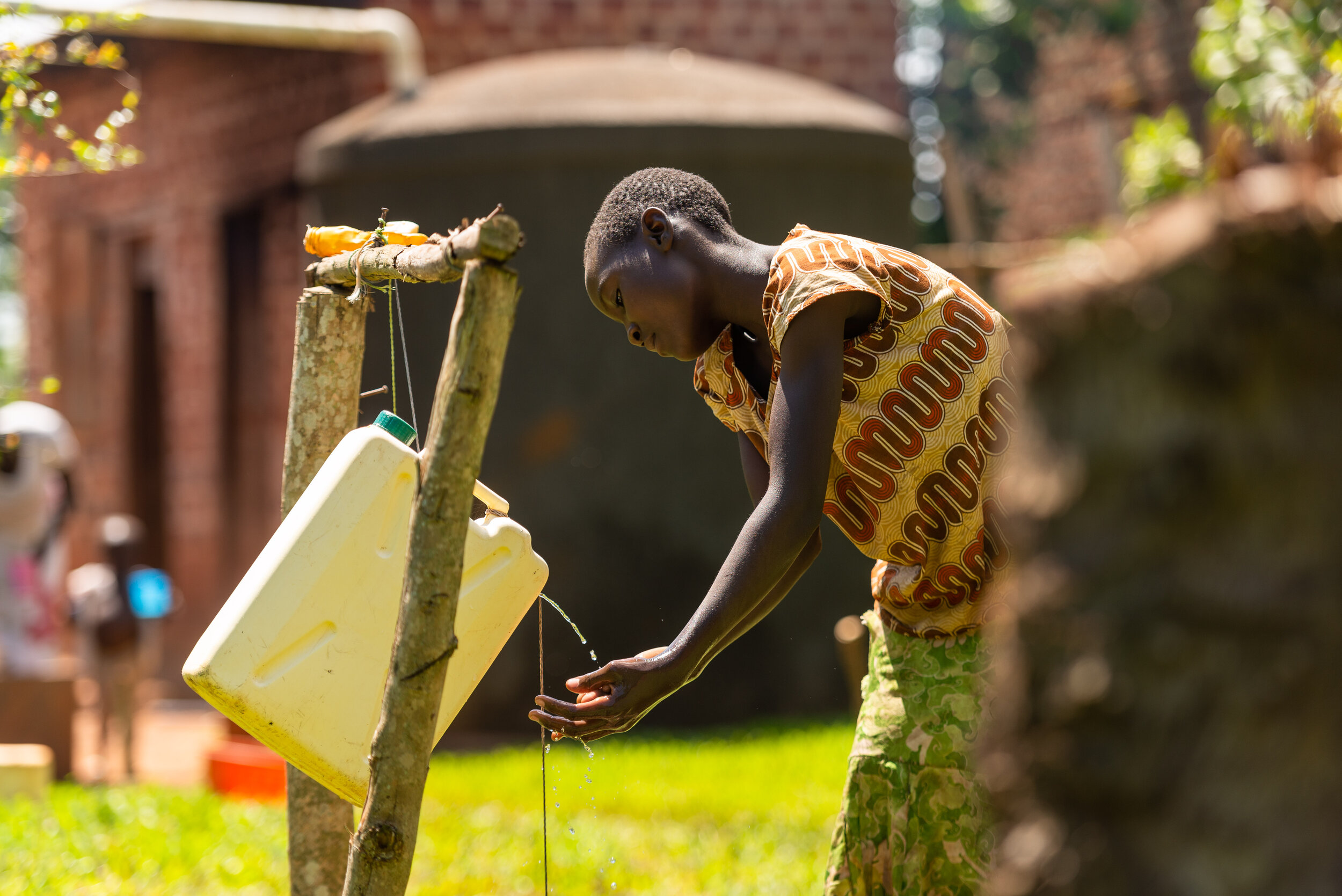One of the leading causes of childhood death in Uganda is the result of limited access to basic sanitation facilities. Diseases like cholera, typhoid, hepatitis, worms and diarrhea are easily spread when there is a lack of sanitation. These diseases can cripple a community’s economy, limit the time children can spend in school, and ultimately kill the youngest and most vulnerable community members.
Thankfully, this suffering is all preventable. Implementing simple latrines with SaTo Pans and tight fitting hole covers eliminates open defecation and protects people from fecal-based illnesses that are easily spread by flies and other bugs landing on feces and then moving to kitchens, food, clothes and more. In 2017, we started working with households on sanitation practices. Reported cases of dysentery and severe diarrhea have dropped by almost 50% since SaTo Pans and latrine covers were introduced.
The SaTo Pan name is derived from the phrase “Safe Toilet” and are designed to close off insects or other hosts’ access to feces - thus limiting their ability to communicate these diseases.The SaTo Pan flap is like a trap door -- the weight of a cup or bucket of water “flushing” the waste down opens the trap door to let it through into the latrine pit, but then the SaTo Pan’s counterweight keeps the SaTo Pan flap closed at all other times. The plastic material is also easy to clean, ensuring any residual waste is “flushed” down the SaTo Pan.
Over the past few years, we’ve also started certifying villages as “Open Defecation Free.” This certification demands a very strict set of protocols and audits by various levels of government. Very few organizations have the skills to support communities to achieve these certifications. In 2018 when we began this certification process, only 12 communities qualified. In 2019, 64 communities were successfully certified.
“Earlier in my life I would get sick all the time. I have had typhoid three times and my seven children were regularly sick as well. But then I learned about water, hygiene and sanitation through WaterSchool. It was more thorough, effective and practical than anything else I had ever heard. It has made a big difference in my life and for my children.”
Learn more about SaTo Pans - the revolutionary “Safe Toilet” and how they are helping to safe lives and keep families safe.


